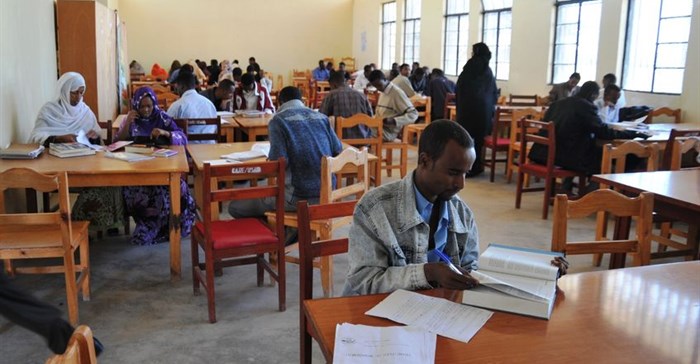
Top stories






More news


Marketing & Media
Ads are coming to AI. Does that really have to be such a bad thing?














The Millennium Development Goals have been and gone. Now, with the Sustainable Development Goals (SDGs) being unveiled the focus shifts to this new list of global priorities.
The United Nations' member states say these targets can only be met through a "revitalised, global partnership for sustainable development, including for multi-stakeholder partnerships." They have also called for "increased capacity-building and better data and statistics to measure sustainable development."
Higher education can play a key role in pursuing the SDGs. Universities produce knowledge for the public good. Their best research addresses societal needs and their graduates are able to contribute to society.
The sector has also proved that it values collaboration of the type required to turn the SDGs from pipe dream to reality. But there is still room for improvement and growth.
The Association of African Universities, a continental body working in higher education, wants institutions on the continent to rise to this challenge. They are likely to do so: already, the African Network for Internationalisation of Education is set to discuss higher education's potential role in bringing the SDGs to life at its annual conference in October 2015.
There are many opportunities for universities to collaborate on teaching, research and information exchange and dissemination. This should be done through well supported, coordinated academic networks that incorporate public and private partners throughout the continent - and beyond.
The Royal Society has showed that collaboration is crucial for researchers and institutions. It is an important indicator of competitiveness, enhances the quality of research and improves its efficiency and effectiveness.
It has also been argued that researchers based in Africa have traditionally had relatively limited contact with their colleagues elsewhere on the continent. This is probably partly because of colonialism: universities tended to maintain contact with their former colonial ties after independence but were slow to build relationships with their peers in Africa.
There has been some progress in this regard, as illustrated most recently by the formation in March 2015 of the African Research Universities Alliance in Senegal. This is a network of 15 leading higher education institutions from eight African countries. Its goal is to train research managers as well as promoting cooperation between universities when it comes to research.
My own institution, Stellenbosch University, is one of several South African universities involved in such collaborations. It has signed on to more than 150 bilateral institutional arrangements in 45 countries. In Africa, it has 350 active projects with 760 partners - institutions and individuals - in 43 countries.
One of these collaborations is the Partnership for Africa's Next Generation of Academics. This is a network between the universities of Botswana, Dar es Salaam, Ghana, Makerere, Malawi, Nairobi and Stellenbosch. It is trying to build and sustain world-class doctoral programmes and scholarly communities by creating partnerships in the arts and social sciences on the African continent.
Another example with particular relevance to sustainable development is the Periperi (Partners Enhancing Resilience for People Exposed to Risk) Universities network. It has partners in Algeria, Ethiopia, Ghana, Kenya, Madagascar, Mozambique, Nigeria, Senegal, South Africa, Tanzania and Uganda. The network aims to be an Africa-led approach to the increasingly important area of disaster risk management.
Periperi-U has conducted important research, educated graduates able to work in this area and offered short-course training in local languages to government officials and civil society.
We and others in higher education have spent some time watching the SDGs take shape. Will our work and focus have to change entirely, or will it be a more simple matter of redirecting existing projects and networks for the challenges of the next 15 years?
The answer is: a bit of both.
Curriculum reform will have to be among the changes of focus the SDGs bring to Africa's universities. We will need to consider how sustainability gets incorporated into what and how we teach and research and engage with communities. This process is underway at Stellenbosch, with 254 projects already identified that relate to the UN's lofty goals.
But working together on African development issues is nothing new. There are a number of consortiums pursuing important work around science and maths training, climate change, water and bio-energy.
Universities have long concluded bilateral and multilateral agreements. More recently, we have seen the rise of multiple-partner networks. These are often organised around a jointly administered educational programme.
Now it's time for African universities to step on the gas. Increased collaboration around the SDGs will not only raise the share of African scientific output, but help create "The Africa We Want" outlined by the AU in its Agenda 2063.![]()

The Conversation Africa is an independent source of news and views from the academic and research community. Its aim is to promote better understanding of current affairs and complex issues, and allow for a better quality of public discourse and conversation.
Go to: https://theconversation.com/africa